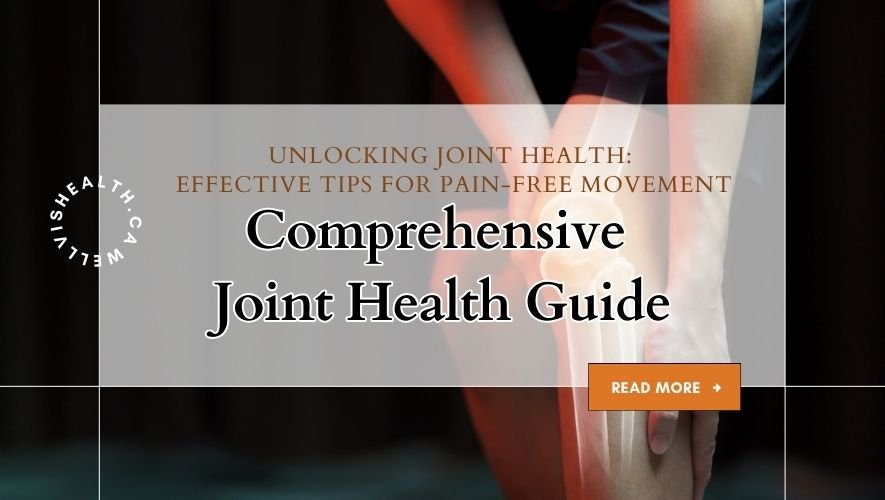☑️ Joints are the connections between bones, providing support and facilitating movement.
☑️ Common joints include knees, hips, shoulders, and elbows.
☑️ Maintaining joint health is crucial for mobility and quality of life.
Understanding Joints and How They Work
-
Anatomy of a Joint:
- Cartilage: A smooth tissue that covers bones at joints, reducing friction.
- Synovial Membrane: Produces synovial fluid for lubrication.
- Ligaments: Connect bones and stabilize the joint.
- Tendons: Connect muscle to bone, facilitating movement.
- Bursae: Cushion areas of friction between structures in a joint.
Common Joint Disorders
-
Osteoarthritis
- A degenerative joint disease common in older adults.
- Symptoms: Pain, stiffness, swelling.
-
Rheumatoid Arthritis
- An autoimmune disorder causing inflammation.
- Symptoms: Swollen, painful joints, fatigue.
-
Gout
- Caused by urate crystal accumulation in joints.
- Symptoms: Sudden, severe pain and swelling, often in big toe.
-
Bursitis and Tendinitis
- Inflammation of bursae or tendons, typically due to overuse.
- Symptoms: Pain and swelling.
Joint Health Maintenance
-
Exercise and Physical Activity
- Engage in regular low-impact exercises: swimming, cycling, walking.
- Strength training to support joint function and reduce injury risk.
- Stretching to enhance flexibility and reduce stiffness.
-
Weight Management
- Maintain a healthy weight to reduce stress on joints, especially knees and hips.
-
Dietary Considerations
- Omega-3 Fatty Acids: Found in fish, help reduce inflammation.
- Antioxidant-rich Foods: Fruits and vegetables to combat oxidative stress.
- Vitamin D and Calcium: Essential for bone health.
- Limit Sugar and Processed Foods: Reduce inflammation and joint pain.
Preventive Strategies
-
Injury Prevention
- Use proper techniques and equipment during physical activities.
- Warm-up before exercising and cool down afterward.
-
Ergonomic Solutions
- Adapt workspaces to maintain joint comfort.
- Use supportive footwear to align hips, knees, and feet.
Treatment and Management
-
Medications
- NSAIDs (Nonsteroidal anti-inflammatory drugs) for pain relief.
- Disease-modifying antirheumatic drugs (DMARDs) for rheumatoid arthritis.
- Corticosteroids to reduce inflammation.
-
Physical Therapy
- Tailored exercises to strengthen muscles around joints.
- Techniques to improve range of motion and manage pain.
-
Alternative Therapies
- Acupuncture and massage therapy for pain management.
- Supplements such as glucosamine and chondroitin (consult healthcare provider).
-
Surgical Interventions
- Joint arthroscopy for minor repairs.
- Joint replacement surgery for severely damaged joints.
Lifestyle Modifications for Joint Health
-
Smoking Cessation
- Smoking can worsen symptoms and delay recovery.
-
Stress Management
- Techniques such as yoga and meditation to reduce stress affect inflammation and pain perception.
-
Adequate Sleep
- Ensure sufficient and quality sleep for healing and pain management.
Maintaining joint health is a multifaceted approach that includes understanding the anatomy and functions of joints, engaging in preventive measures, and adopting a lifestyle that supports joint function and reduces the risk of disorders. Through scientific insight and practical strategies, joint health can be preserved to enhance mobility and overall well-being. Always consult with healthcare professionals for a plan tailored to individual needs and conditions.
Reference:
-
Mayo Clinic - Arthritis Overview
Mayo Clinic: Arthritis -
National Institutes of Health (NIH) - Osteoarthritis
NIH: Osteoarthritis -
WebMD - Rheumatoid Arthritis
WebMD: Rheumatoid Arthritis -
Centers for Disease Control and Prevention (CDC) - Managing Gout
CDC: Gout -
Harvard Health Publishing - Exercise and Arthritis
Harvard Health: Exercise and Arthritis -
American Academy of Orthopaedic Surgeons - Weight Management and Joint Health
AAOS: Managing Weight for Joint Health -
Arthritis Foundation - Anti-Inflammatory Diet
Arthritis Foundation: Anti-Inflammatory Diet -
Cleveland Clinic - Joint Pain and Treatment Options
Cleveland Clinic: Joint Pain -
PubMed - Omega-3 Fatty Acids and Inflammation
Many scientific articles discuss the benefits of omega-3s for inflammation, such as this one:
PubMed: Omega-3 Fatty Acids









